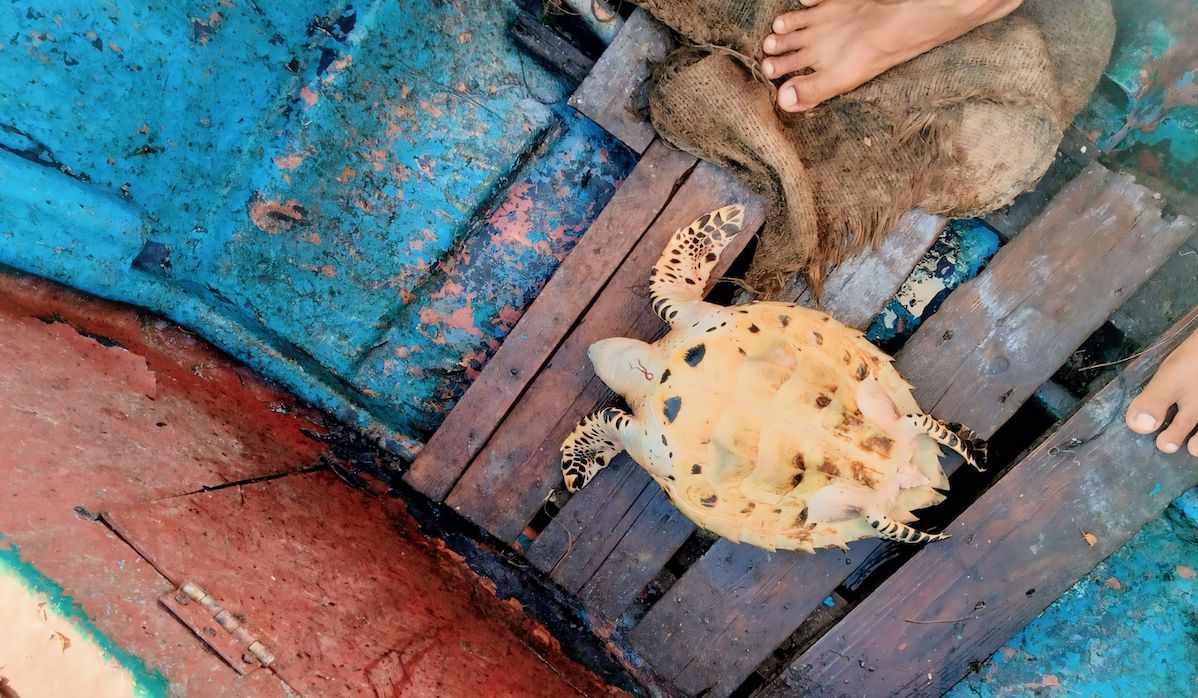Tarun Karthick
Port Blair, 03 April 2024
In a commendable display of conservation efforts, a joint initiative between the Indian Council of Agricultural Research – Central Island Agricultural Research Institute (ICAR-CIARI) and the Department of Science and Technology (DST) has led to the successful rescue of a juvenile Hawksbill turtle in Car Nicobar.
The initiative, aimed at monitoring sea turtle populations through citizen science projects, witnessed Nicobarese fishermen from Teetop Village taking proactive measures to save the endangered species. The fishermen stumbled upon a distressing sight during their routine fishing activities on April 1, 2024 – a large mass of ghost fishing nets floating in the coastal waters, ensnaring both a live and deceased turtle.
Reacting swiftly and in adherence to responsible fishing practices, the fishermen intervened to rescue the entangled juvenile sea turtle. With careful precision, they cut through the nets and released the turtle back into the ocean unharmed. This timely action not only saved a vulnerable marine creature but also highlighted the significance of community involvement in conservation efforts.
Citizen Science Initiative equipped the fishermen with the knowledge and skills needed to respond effectively to such situations.
Crucially, the fishermen documented the entire rescue operation, capturing the process on video as instructed during their training sessions. This documentation serves as a testament to the success of the citizen science initiatives undertaken by ICAR-CIARI and DST.
The collaboration between scientific institutions and local communities underscores a proactive approach towards biodiversity conservation in Car Nicobar. By empowering tribal fishermen with education and awareness, the initiative aims to minimize environmental threats and safeguard vulnerable marine fauna like the Hawksbill turtle.
The rescue of the Hawksbill turtle stands as a shining example of how collective efforts can make a significant impact on marine conservation, reaffirming the importance of citizen science in safeguarding our natural heritage.

